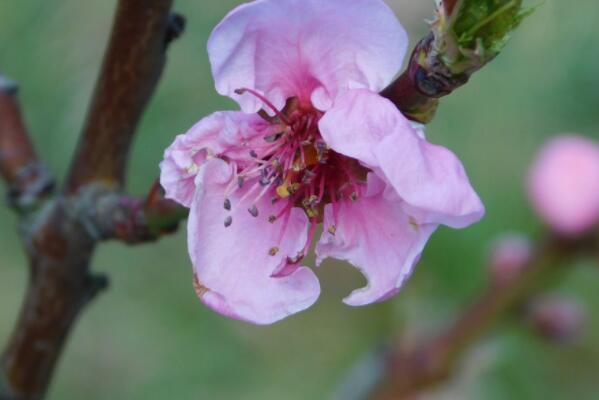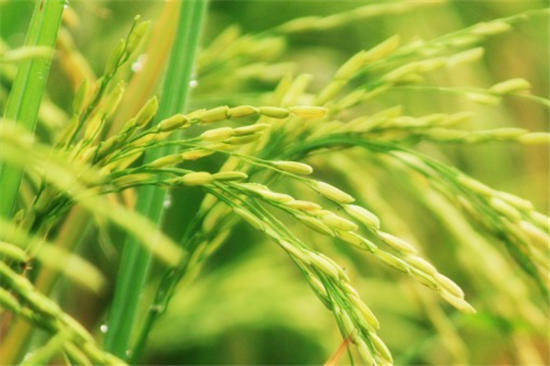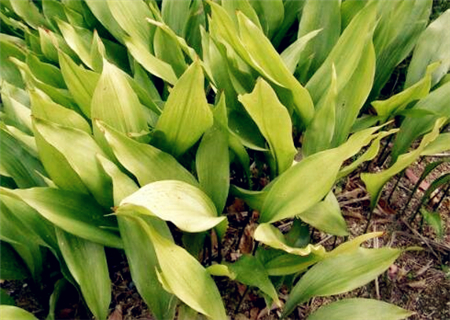Why do peach trees ward off evil spirits? Before and after flowering, aphids, heart-eating insects and other pests hit what drugs?
Peach trees are small deciduous trees with narrow oval to lanceolate leaves. They are native to China and are widely cultivated in various provinces. It is planted all over the world. So do you know why peach trees can ward off evil spirits? Before and after flowering, aphids, heart-eating insects and other pests hit what drugs? Let's learn about it together.

Why do peach trees ward off evil spirits?
Mahogany can ward off evil spirits from legends.
Legend one
In ancient Chinese mythology, it is said that there is a world of ghosts, in which there is a mountain, on which there is a big peach tree covering three thousand miles, and a golden rooster on the treetop. Whenever the golden rooster crows in the morning, the ghosts who go out at night will rush back to the ghosts. The gate of the ghost region is located in the northeast of the peach tree. by the door stood two god-men named Shencha and Yu Bai, each holding peach branches, specializing in catching demons and taking evil spirits.
If the ghost does something harmful at night, Shen Ta and Yu Ba will immediately find it and catch it, tie it up with a rope made of awn Reed, and send it to the tiger. As a result, ghosts all over the world are afraid of divine tea and depression. So the folk carved their appearance with peach wood and put them on their doorstep to avoid evil and prevent harm. Later, people simply engraved the names of Shen Ta and Yu Bai on the peach board, thinking that doing so could also ward off evil. This kind of peach board was later called "Taofu" and is also considered to be one of the beginnings of New year painting art.
Legend two
According to ancient books, Hou Yi was killed by a mahogany stick and was named Zongbu God after his death. this god often led a tiger under a peach tree, and every ghost had to go to be tested. Zongbu God heard that if it was a demon, it would be eaten by the tiger. One said it was related to Kuafu. It is said that Kuafu died of hunger and thirst. Before he died, he threw the staff in his hand and turned it into a piece of Deng Lin, that is, Taolin. It is to enable future generations to eat sweet and delicious peaches, because Kuafu has a close relationship with the sun, so ghosts are afraid of mahogany.
From ancient times, it is said that mahogany is the essence of five trees, which can subdue evil.
What drugs do peach trees hit before and after flowering, aphids, heart-eating insects and other pests?
1. Before and after flowering
From late March to early April, many varieties of peach trees in North China entered the flowering stage (figure 3-105). As pollen and stamens are sensitive to many chemicals, they are generally not suitable for spraying chemical pesticides. However, this period is an important period for flower thinning, flower protection, fruit thinning and fruit fixing. Measures for flower thinning and fruit determination should be determined according to flower quantity, tree growth and nutritional status, so as to ensure high and stable yield of fruit trees.
The main results are as follows: (1) Flower thinning measures peach has many flower buds and high fruit setting rate of many varieties, especially the fruit setting of adult trees is easy to exceed the load. As a result, too much fruit is bound to produce a large number of small fruits, which will reduce fruit quality and fruit utilization. Attention should be paid to timely flower thinning and fruit thinning, and the effect of flower thinning is generally the best after full flowering. Within 10 days after full flowering, 20, 40 and 60mg/kg3 concentrations of naphthalene acetic acid were sprayed, and the flower rates were 26.6%, 30.1% and 58.4%, respectively, and the flower thinning rates were 20.8%, 23.6% and 35.7% respectively when 20, 40 and 60mg/kg3 concentrations were sprayed 2 weeks after flowering.
(2) due to the early flowering of peach trees, the normal flowering and pollination are often affected by overcast rain, strong wind and cold weather, or there are few flower buds due to the influence of some factors during flower bud formation last year. Generally, measures should be taken to increase pollination rate and reduce flower drop, so as to ensure high and stable yield. At the same time, it is the most simple and effective to take measures at flowering stage. Because the peach tree after flowering, 3-4 weeks after flowering and three fruit drop periods in late May, most of the reasons for fruit drop are the end of pollination or the cessation of fertilized embryo development. Therefore, the application of hormones and micro-fertilizers to promote flowering and pollination is the key period for flower and fruit protection. According to flowering and weather conditions, bees can generally be released artificially during flowering, spraying 0.3% 0.5% borax solution + 0.3% urea solution, or 0.3% 0.5% borax solution + 0.1% sugar solution, spraying once when the central flower blossoms 6% ~ 7%, can protect flowers, and can promote pollen germination and control peach fruit shrinkage disease. In addition, spraying a drop of 20mg/kg, triacontanol 1~2mg/kg and gibberellin 20~50mg/kg from flowering to young fruit stage could increase the pollen germination rate and promote fruit setting. It can also be sprayed with 3000-fold liquid or 3000-fold liquid at flowering stage.
2. Aphids
(1) dry the medicine with 40% omethoate, add 1 part of multifunctional plant synergist, add 2 parts of water, and mix to form a solution. Apply a 10 cm wide ring on the tree trunk with a brush. If the bark is rough, scrape off the old bark before applying medicine. After application, wrap it with newspaper or plastic film.
(2) the trunk is injected with an iron cone oblique to the xylem from top to bottom, and then 40% dimethoate is injected with No. 8 syringe to close the orifice, and more than 95% of the aphids can be killed after 2-3 days.
(3) there are many agents that can be used for spraying, including 35% endosulfan EC 1500 times, 50% aphid spray 3000-4000 times, 50% phoxim EC 1500 times, 40% omethoate 1500 times, 50% malathion (marathon) EC 1000 times, imidacloprid (aphid aphid) 5000 times, etc. In order to improve the control effect, a certain amount of developing agent can be added to the solution, several agents should be used alternately, and the use of a single agent should be avoided as far as possible.
3. Heart-eating insects
(1) do a good job in clearing the garden, that is, scrape off the old warped skin of peach trees and deal with them centrally in order to eliminate the overwintering larvae.
(2) fruit bagging: peach fruit bagging; early-maturing varieties were sprayed once before bagging to control other diseases and insect pests to eliminate the eggs laid by the early peach borer.
(3) destroy the fallen fruit and remove the insect fruit, and destroy the larvae in the fruit.
(4) spraying control: it is necessary to grasp the peak spawning period of the first and second generations of adults. 50% fenitrothion emulsion 1000 times, 50% phoxim EC 1000 times, 25% deltamethrin EC 5000 times, 2.5% kungfu EC 3000 times.
Time: 2019-04-10 Click:
- Prev

What is annual plant rice bakanae disease? How? With what medicine can you cure?
Rice is one of the more common cash crops in China, almost every family is planted, but with the changes of environment and external factors, rice is infected with various diseases, and rice bakanae disease is the most common one. What caused it? With what medicine can cure? Rice seedling disease is also called male seedling disease
- Next

When will the one-leaf orchid of Ruo leaf blossom? What if the leaves turn yellow? Culture methods and matters needing attention are attached
One-leaf orchid, also known as spider egg, alias big leaf evergreen, bamboo leaf plate, Kowloon plate, bamboo tendon and so on, for Liliaceae, spider egg genus plant. Traditional Chinese medicine (TCM) is widely used in traditional Chinese medicine with rhizome components. So when will the leaf orchid bloom? What if the leaves turn yellow?
Related
- Fuxing push coffee new agricultural production and marketing class: lack of small-scale processing plants
- Jujube rice field leisure farm deep ploughing Yilan for five years to create a space for organic food and play
- Nongyu Farm-A trial of organic papaya for brave women with advanced technology
- Four points for attention in the prevention and control of diseases and insect pests of edible fungi
- How to add nutrient solution to Edible Fungi
- Is there any good way to control edible fungus mites?
- Open Inoculation Technology of Edible Fungi
- Is there any clever way to use fertilizer for edible fungus in winter?
- What agents are used to kill the pathogens of edible fungi in the mushroom shed?
- Rapid drying of Edible Fungi

